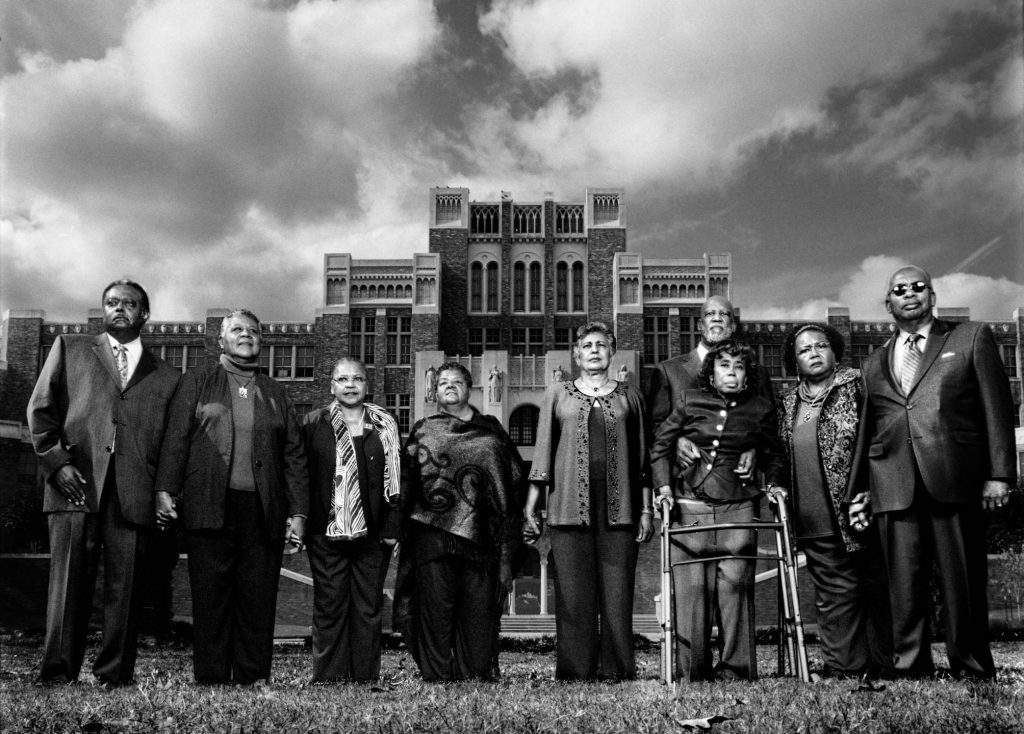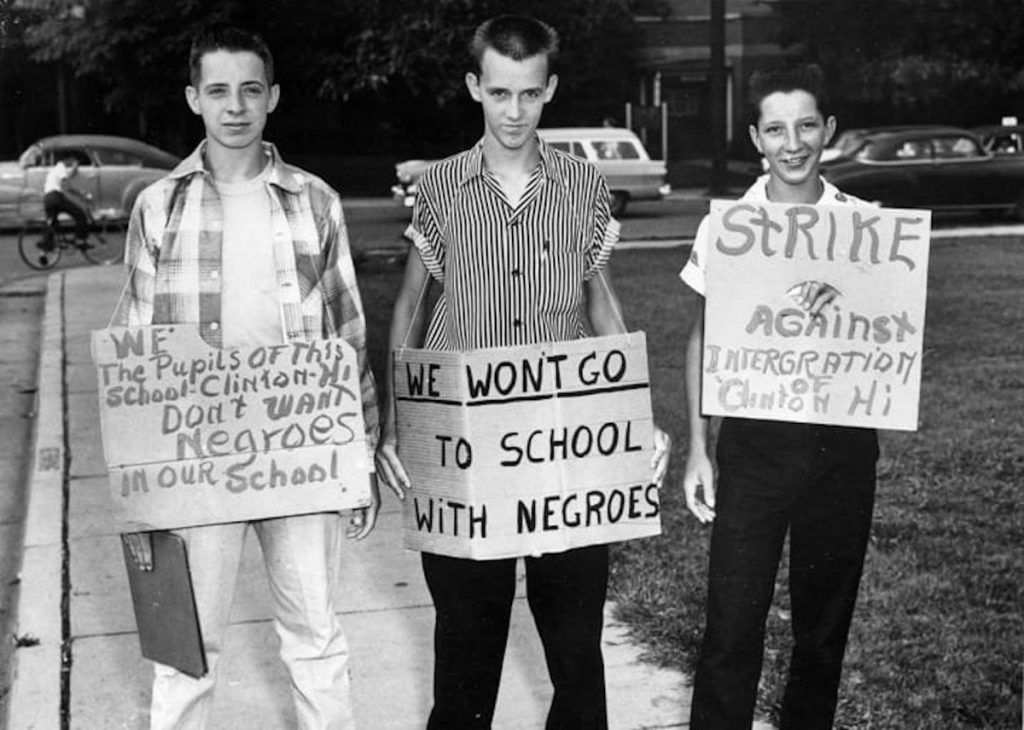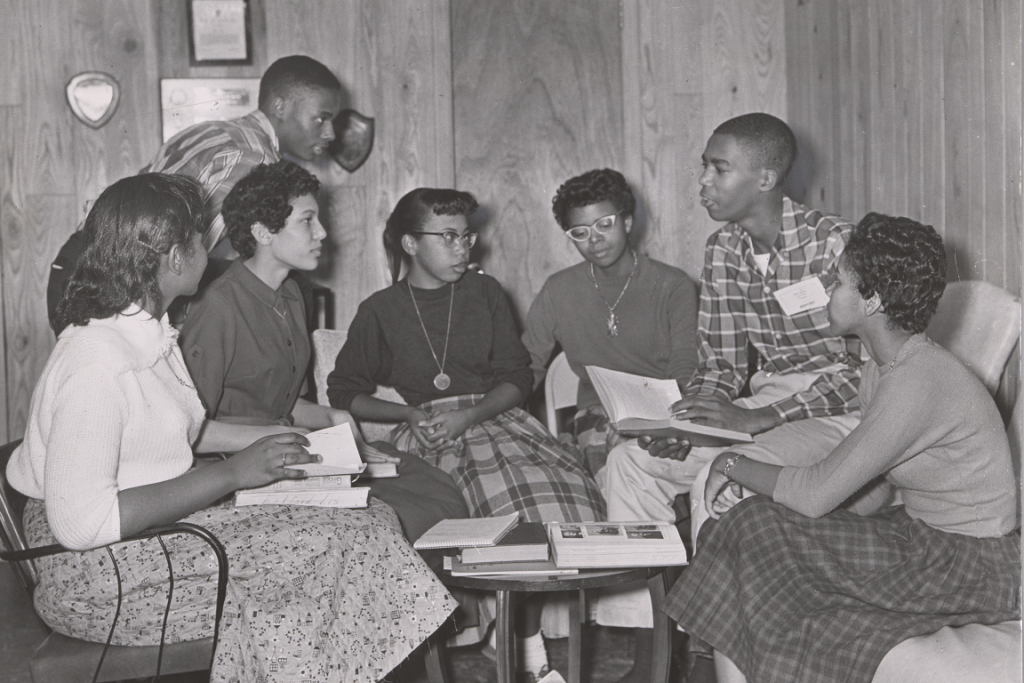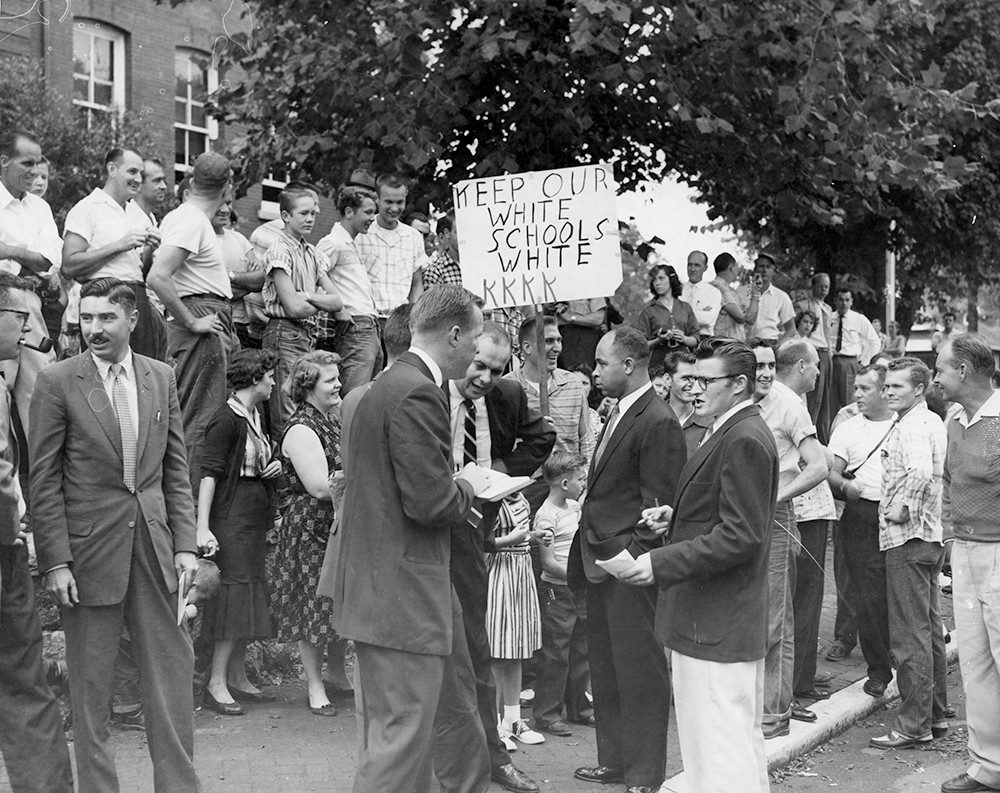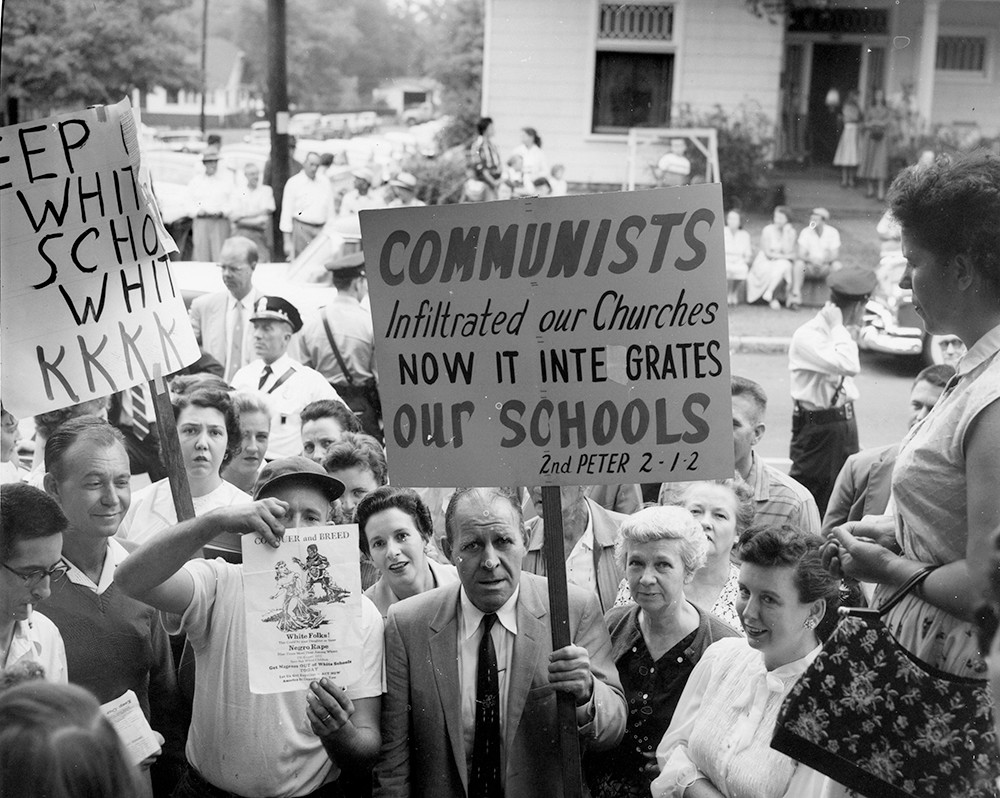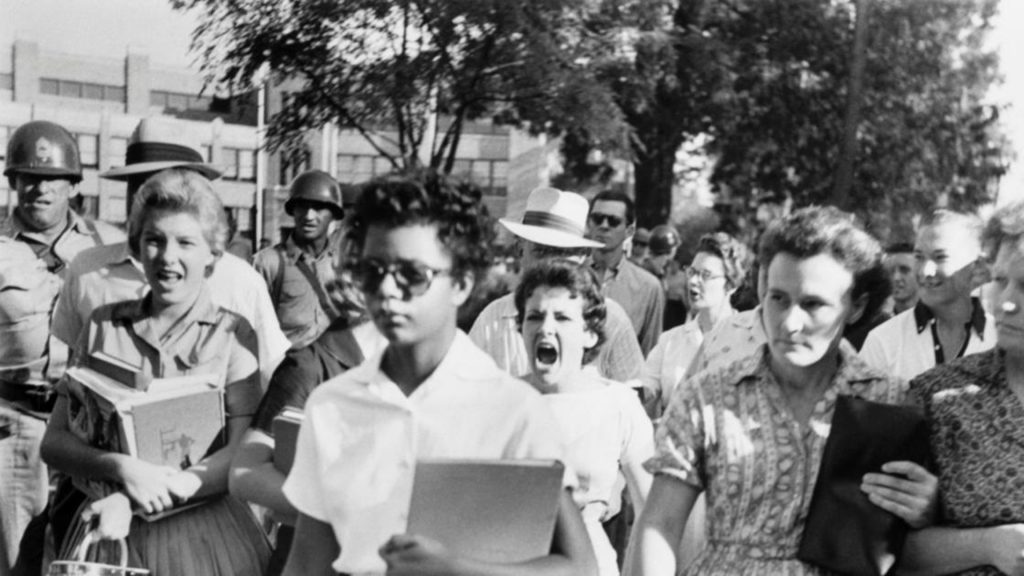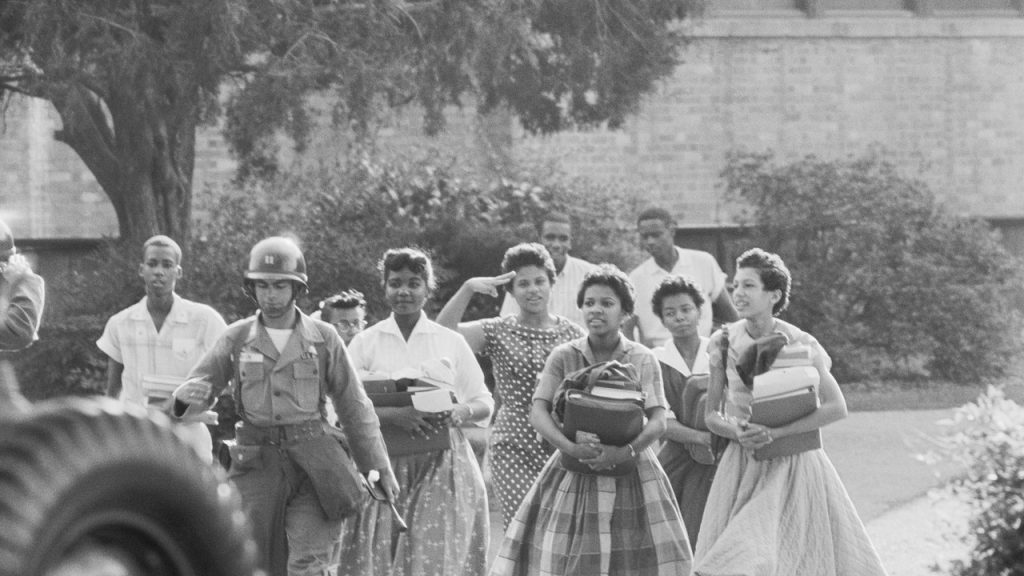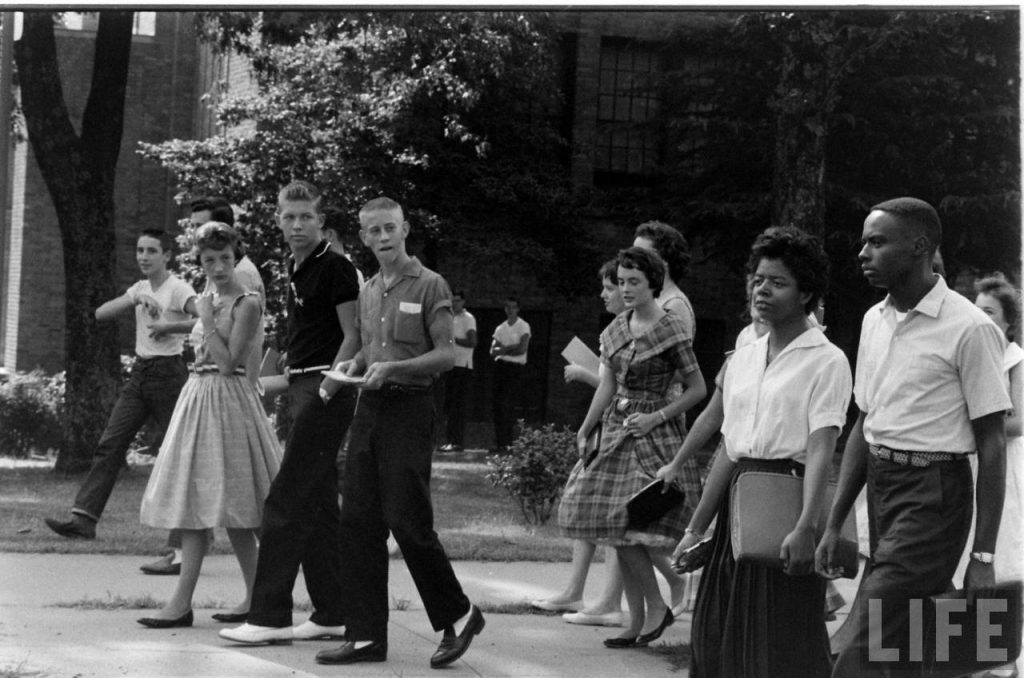Welcome!
The expanding interviews and resources on this website grow out of a vision developed by Treopia Washington, a life-long educator, advocate for equity and older sibling of Ernest Green, one of the “Little Rock Nine”. Treopia and her siblings, Ernest and Scott, experienced life in the Jim Crow south at a key point in history– during the transition from legalized segregation in US schools (and elsewhere) through the transition of federally mandated desegregation. Their conversations and memories (along with our other interviewees’) form a sort of dialogue about how social justice movements form, how individuals, families and communities navigate change and expanding understandings of those who have been seen as “other”, and how we grow together toward a shared humanity that doesn’t blur or diminish our unique gifts, but rather creates space and opportunity for ALL people to appreciate and benefit from the diversity that is demonstrated by every part of our beautiful human family.
Our hope is that educators will use the interviews and resources here to guide students of all ages and in all settings in learning more about the Civil Rights Movement, US school desegregation, and social justice issues at the national and international level. But most importantly, we hope to stimulate important conversations at the classroom, school and community level. We believe that starts with educators who have already engaged in those kinds of thinking and discussion with each other. This “workshop” is designed to stimulate that kind of interaction and growth among educators. Additionally, these resources can and should be adapted for appropriate classroom and community settings in which these conversations need to happen.
Before the Workshop
On February 1st of 2021, we completed a substantial piece of this project by releasing the documentary film, The Green Siblings Project, which explores the stories of all three siblings and Robin White, and also lays out the concepts in the three segments of this workshop in the context of our interviews with the Greens and Robin. The best way to begin this workshop, if you and your team haven’t viewed it already, is to watch the full hour-long film. We strongly recommend that as your first step on this journey. You can view the film in whole or broken into five shorter segments on this page of our website.
How to Proceed
Although it would certainly be beneficial to move through this content on your own (reading, watching, reflecting, journaling), we feel the most productive use of this workshop material is to engage with it in community. Forming small circles (5 to 7) for sharing and conversation is best. Each unit, Circles of Identity, Loss & Growth, Action & Outcome, contains instruction for viewing video clips, journaling around particular questions, and engaging in conversations with your circle. You can access those unit pages via the links provided above, or via the drop down tabs in the header of the Green Siblings Project website. The units are designed to be discussed in that order:
The process is fairly straightforward, but given the potentially sensitive nature of many of the stories, perspectives and discussions that could be shared, we feel like some very direct guidance on HOW to engage in a circle conversation that remains both safe and vibrant will be helpful. The model that we use in creating safe circle space when we do workshops or retreats in person is the Circle of Trust® approach developed by Parker Palmer, author and founder of the Center for Courage & Renewal®. The key guiding principles for creating this type of safe and trustworthy space are the Courage & Renewal Touchstones®.
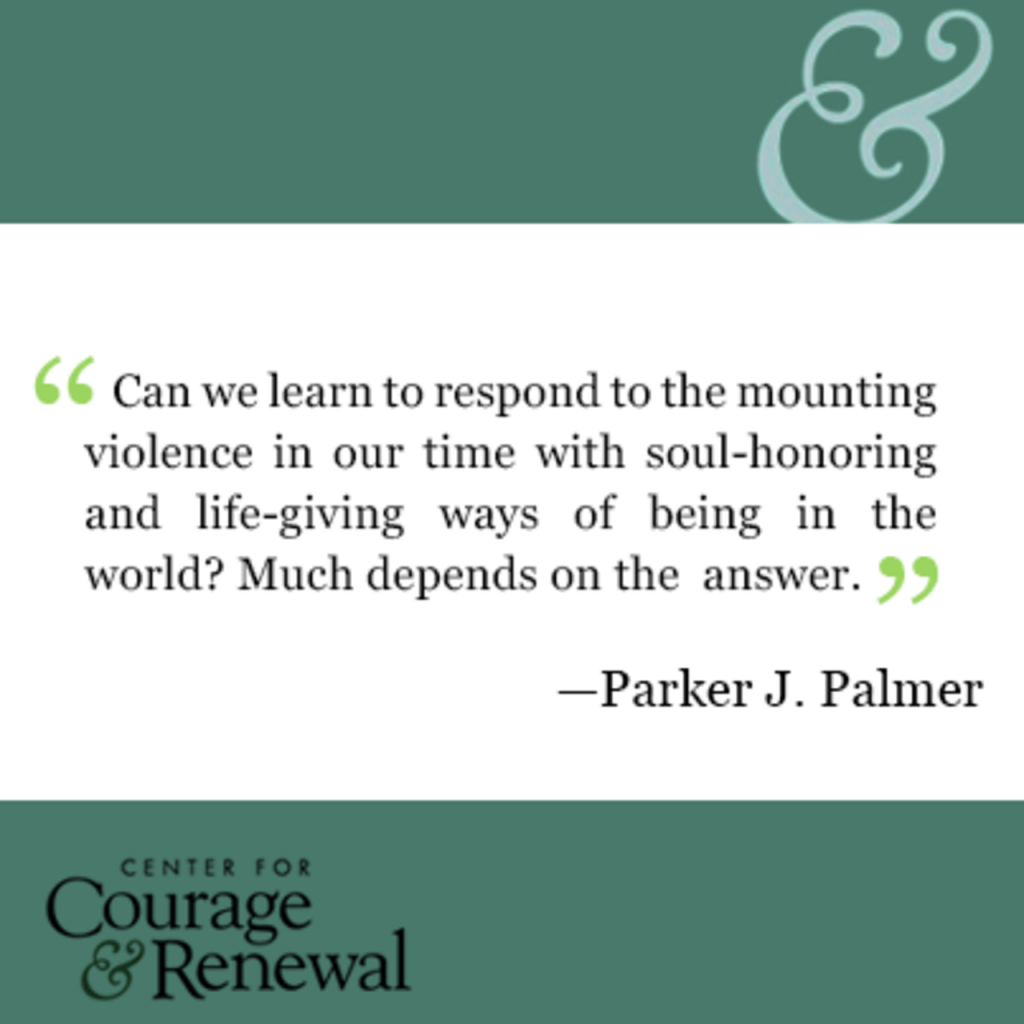
Circle of Trust® Touchstones for Safe and Trustworthy Space
- Give and receive welcome. People learn best in hospitable spaces. In this circle we support each other’s learning by giving and receiving hospitality.
- Be present as fully as possible. Be here with your doubts, fears and failings as well as your convictions, joys and successes, your listening as well as your speaking.
- What is offered in the circle is by invitation, not demand. This is not a “share or die” event! Do whatever your soul calls for, and know that you do it with our support. Your soul knows your needs better than we do.
- Speak your truth in ways that respect other people’s truth. Our views of reality may differ, but speaking one’s truth in a circle of trust does not mean interpreting, correcting or debating what others say. Speak from your center to the center of the circle, using “I” statements, trusting people to do their own sifting and winnowing.
- No fixing, saving, advising or correcting each other. This is one of the hardest guidelines for those of us who like to “help.” But it is vital to welcoming the soul, to making space for the inner teacher.
- Learn to respond to others with honest, open questions. Do not respond with counsel or corrections. Using honest, open questions helps us “hear each other into deeper speech.”
- When the going gets rough, turn to wonder. Turn from reaction and judgment to wonder and compassionate inquiry. Ask yourself, “I wonder why they feel/think this way?” or “I wonder what my reaction teaches me about myself?” Set aside judgment to listen to others—and to yourself—more deeply.
- Attend to your own inner teacher. We learn from others, of course. But as we explore poems, stories, questions and silence in a circle of trust, we have a special opportunity to learn from within. So pay close attention to your own reactions and responses, to your most important teacher.
- Trust and learn from the silence. Silence is a gift in our noisy world, and a way of knowing in itself. Treat silence as a member of the group. After someone has spoken, take time to reflect without immediately filling the space with words.
- Observe deep confidentiality. Safety is built when we can trust that our words and stories will remain with the people with whom we choose to share, and are not repeated to others without our permission.
- Know that it’s possible to leave the circle with whatever it was that you needed when you arrived, and that the seeds planted here can keep growing in the days ahead.
© Center for Courage & Renewal, founded by Parker J. Palmer.
Explore more concerning the Touchstones here.
